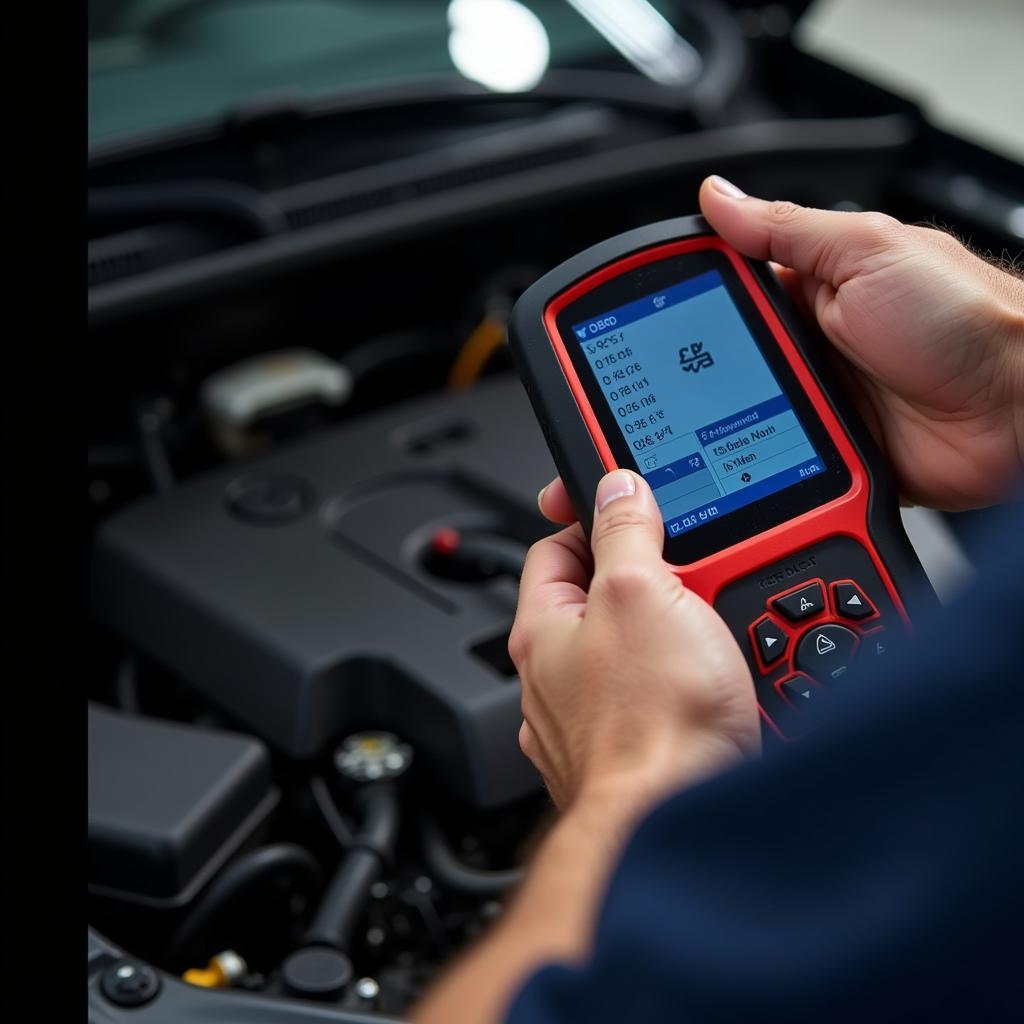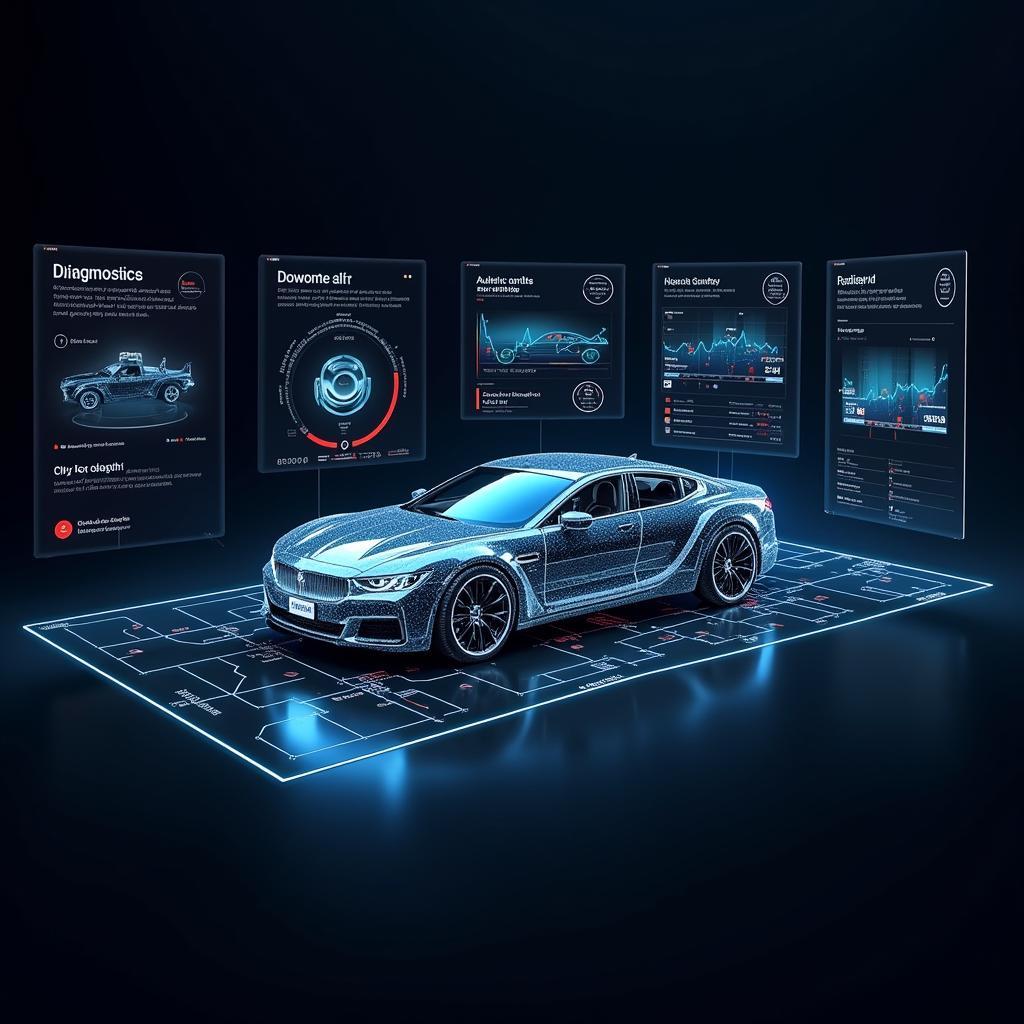The inner workings of modern vehicles can seem like a mystery without the right tools. That’s where car diagnostic tools come into play. These powerful devices have revolutionized the way mechanics diagnose and repair vehicles, providing deep insights into the complex systems that keep cars running smoothly.
Understanding the Power of Car Diagnostic Tools
Gone are the days of relying solely on experience and intuition to pinpoint car problems. Car diagnostic tools have become essential for automotive professionals and DIY enthusiasts alike, offering a window into the electronic control units (ECUs) that govern various vehicle functions.
These tools empower you to:
- Retrieve Diagnostic Trouble Codes (DTCs): These codes act like digital breadcrumbs, highlighting specific areas within a vehicle’s system that require attention.
- Read and Analyze Live Data Streams: Monitor real-time sensor readings for various parameters like engine speed, temperature, fuel pressure, and more, allowing for accurate identification of performance issues.
- Perform Actuator Tests: Actively test components like fuel injectors, solenoids, and actuators to verify their functionality and isolate faults.
- Access Vehicle-Specific Information: Retrieve manufacturer-specific data, wiring diagrams, and technical service bulletins to aid in complex repairs.
Types of Car Diagnostic Tools
The market offers a wide range of car diagnostic tools, each catering to different needs and budgets.
1. Basic Code Readers
Ideal for car owners seeking to understand the meaning behind a “check engine” light, basic code readers are affordable and user-friendly. They primarily retrieve and display DTCs, allowing you to get a basic understanding of potential issues.
2. OBD-II Scanners
Offering a step up from basic code readers, OBD-II scanners provide more detailed information beyond DTCs. They can display live data streams, freeze frame data (capturing vehicle parameters at the time a fault occurred), and perform some bi-directional control tests.
 Mechanic Using OBD-II Scanner
Mechanic Using OBD-II Scanner
3. Professional-Grade Scan Tools
Designed for professional mechanics and workshops, these tools are sophisticated and comprehensive. They offer advanced functionalities like module coding, programming, key reprogramming, and access to manufacturer-specific systems. These tools often come with extensive databases, technical support, and regular software updates to stay current with evolving vehicle technologies.
Choosing the Right Car Diagnostic Tool
Selecting the right tool depends on your specific needs and level of expertise. Consider the following factors:
- Vehicle Compatibility: Ensure the tool supports your vehicle’s make, model, and year. Older vehicles may require specialized adapters.
- Functionality: Determine what features are essential for your needs, whether it’s simple code reading, live data analysis, or advanced programming capabilities.
- User Interface: Choose a tool with an intuitive interface that aligns with your technical comfort level.
- Budget: Prices vary significantly based on functionality and brand reputation. Set a budget that balances your needs with your financial constraints.
Benefits of Using Car Diagnostic Tools
Investing in a car diagnostic tool, whether you’re a car owner or a professional mechanic, brings numerous advantages:
- Faster and More Accurate Diagnoses: Eliminate guesswork and pinpoint issues quickly, saving time and unnecessary repairs.
- Cost Savings: Identify problems early to prevent further damage and avoid expensive repairs down the line.
- Increased Control and Transparency: Gain a deeper understanding of your vehicle’s health and performance, empowering you to make informed decisions about maintenance and repairs.
- Enhanced Safety: Proactively address potential safety concerns by identifying issues before they escalate.
Car Diagnostic Tools: The Future of Automotive Repair
As vehicles become increasingly complex, the role of car diagnostic tools will continue to expand. Expect to see advancements in wireless connectivity, cloud-based data analysis, and predictive diagnostics, further empowering automotive professionals and car owners alike.
 Futuristic Car Diagnostic Interface
Futuristic Car Diagnostic Interface
Conclusion
Car diagnostic tools have become indispensable for navigating the complexities of modern vehicles. Whether you’re a seasoned mechanic or a car enthusiast, the right tool can empower you to diagnose problems accurately, save money on repairs, and keep your vehicle running in peak condition. Investing in a quality car diagnostic tool is an investment in your vehicle’s longevity and your peace of mind.

Leave a Reply